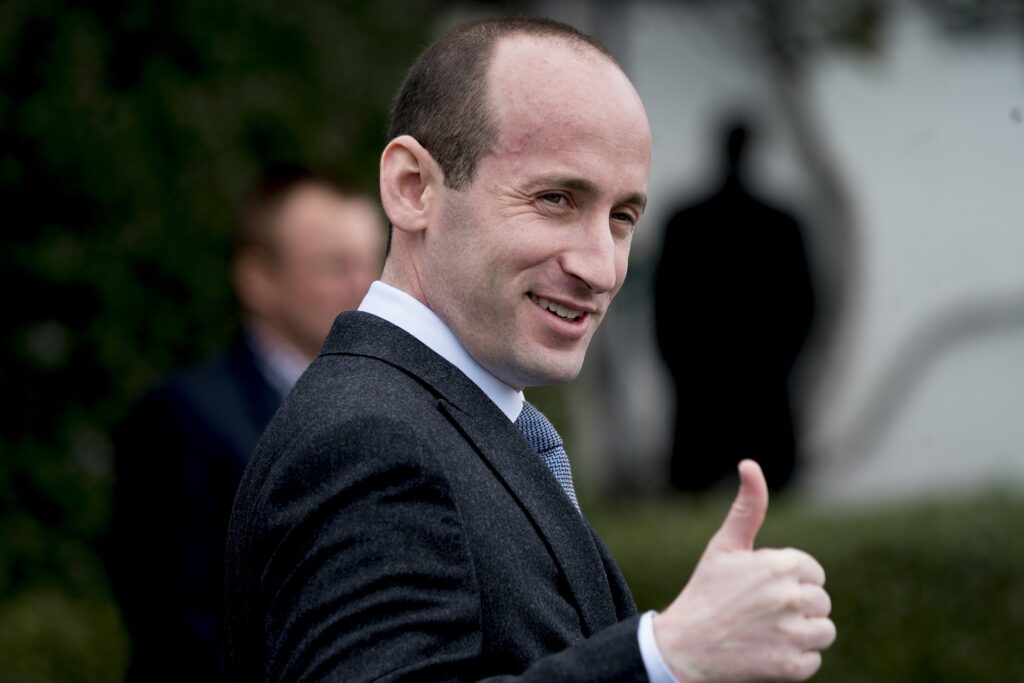Stephen Miller, known for his staunch advocacy for strict immigration policies, is poised to rejoin Donald Trump’s administration as White House deputy chief of staff for policy. Having previously served in this capacity during Trump’s first term, Miller’s influence looms large as Trump prepares for his anticipated second term in office. As reported by CNN, Miller will take a central role in shaping the administration’s immigration strategy, which promises to be more aggressive in nature. His appointment signals a commitment to Trump’s hardline immigration stance, with plans that include increasing deportations dramatically, aiming to triple the annual deportation numbers to over one million undocumented immigrants. Miller’s presence in the White House is expected to be pivotal in executing policies that directly align with the America First agenda.
During his previous tenure in the Trump administration, Stephen Miller played an instrumental role in crafting some of the most controversial immigration policies, advocating for measures that prioritized deportation and border security. His selection as deputy chief of staff for policy indicates an expanded role where he can further influence other areas of policy-making within the administration. While specific details concerning his future initiatives are yet to be announced, analysts speculate that his focus will likely remain fixed on stringent immigration enforcement. Miller’s track record has made him a key figure among advocates of hardline immigration reform, creating a narrative around the need for stricter controls as part of America’s national security strategy.
Miller’s recent remarks about President Biden have added another layer of intrigue to his impending role. He has criticized Biden’s policies extensively and even suggested that Biden could face legal repercussions after leaving office, pointing to issues such as alleged financial crimes linked to immigration policies and promises of student loan forgiveness. Miller’s provocative statements highlight the contentious nature of immigration politics in the U.S., where the landscape is often marked by sharp partisan disagreements. His outspoken criticism indicates that, under a second Trump administration, personnel changes and policy decisions may provoke even more intense scrutiny and debate surrounding immigration practices.
Moreover, Donald Trump has also announced the appointment of former ICE Director Tom Homan as his “Border Czar,” a position that underlines the administration’s commitment to strict immigration enforcement. Homan’s extensive experience in immigration enforcement provides a practical dimension to Miller’s policy ambitions, as he will oversee initiatives aimed at securing the border and facilitating mass deportations. Trump touted Homan’s suitability for the role on social media, emphasizing his credentials and promising robust action against illegal immigration. This dual-approach from both Miller and Homan suggests a concerted effort to enact sweeping changes to current immigration protocols, intending to bolster national security.
Miller, while leading America First Legal, has engaged in various legal battles against the Biden administration, achieving notable successes in reversing several progressive policies. His organization aims to uphold policies that align with conservative beliefs and has been active in challenging actions taken by the current administration. The transition back into a prominent role within the Trump administration could potentially amplify those efforts, as Miller would have access to the levers of power to implement his vision more broadly. His dual roles in a legal capacity and within the White House may allow for a more cohesive strategy that can impact immigration law and enforcement significantly.
As the Trump administration gears up for this critical phase, the appointments of both Miller and Homan reflect a clear intention to revert to and intensify the previous administration’s restrictive immigration agenda. This renewed focus will likely shape the broader national dialogue around immigration in the coming years, stirring reactions from both supporters and opponents. With an emphasis on security and deportation, the implications of these appointments could underscore the administration’s approach towards immigration reform, especially as the nation grapples with the complexities of immigration dynamics in a polarized political environment. The future landscape of U.S. immigration policy rests on these emerging strategies and the potential consequences they may evoke in society.

